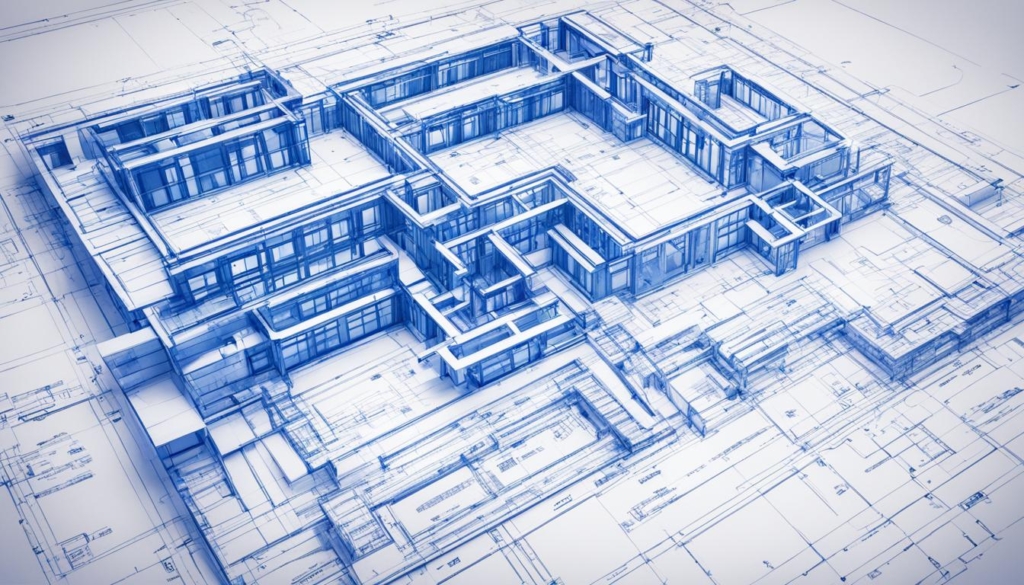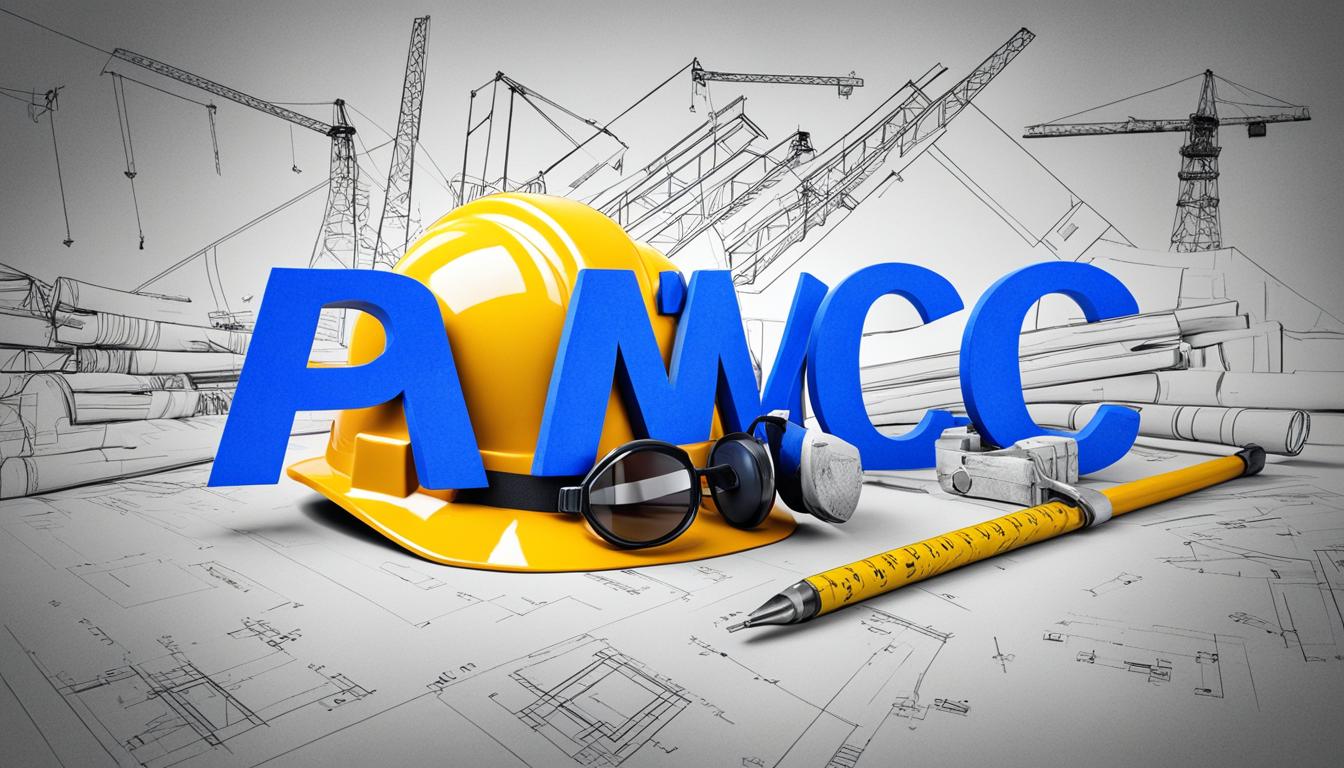Are you curious about the PMC full form in construction? Project Management Consultants (PMC) play a crucial role in the field of construction, providing valuable oversight and support throughout the project lifecycle.
When it comes to construction projects, PMC refers to a multidisciplinary team of experienced engineers and managers. Oil and gas companies in the Middle East often hire PMC to ensure independent oversight, progress monitoring, and reporting for medium to large projects.
The primary responsibility of a PMC is to align engineering and management specialties with project requirements and contractual obligations. While some may think that PMC’s main role is to check for errors or omissions in contractor documentation, their true purpose is to review and provide approvals based on the contracted scope.
By acting as a bridge between oil companies and contractors, PMC helps protect the interests and contractual obligations of both parties. They facilitate effective communication, collaboration, and adherence to project timelines to ensure successful project execution.
Key Takeaways
- PMC stands for Project Management Consultants in the field of construction.
- They provide independent oversight, progress monitoring, and reporting for construction projects.
- PMC’s main role is to align engineering and management specialties with project requirements and contractual obligations.
- They act as a bridge between oil companies and contractors, protecting the interests of both parties.
- PMC facilitates effective communication, collaboration, and adherence to project timelines for successful project execution.
The Role of a PMC in Project Management
## The Role of a PMC in Project Management
The role of a PMC (Project Management Consultant) in project management is essential for ensuring the successful execution of construction projects. PMC’s contribute to the overall project progress, monitor and administer various functions of the contractor, and safeguard the contractual interests of the oil company.
PMC’s responsibilities encompass a wide range of activities, including engineering, technical support, secretarial duties, documentation, planning, management, procurement, and construction. By actively participating in these functions, PMC’s strive to streamline project operations and ensure compliance with contractual obligations.
During the procurement phase, PMC’s play a critical role in enforcing compliance and schedule parameters. They add value by providing comments and remarks on vendor documentation, contributing to the evaluation and selection of suitable vendors. However, it’s important to note that the approval and review of vendor documentation ultimately rests with the EPC (Engineering, Procurement, and Construction) contractor.
PMC’s also focus on managing schedule risks and ensuring vendors adhere to contractual requirements. By overseeing the procurement process, PMC’s help maintain project timelines and mitigate potential delays.
“PMC’s work as a collaborative team, bridging the gap between contractors and clients. They serve as a crucial link in project management and foster effective communication and coordination among all stakeholders involved.”
With their expertise and understanding of project management principles, PMC’s contribute significantly to the success of construction projects. They ensure that project progress aligns with the established contractual scope and provide guidance and support throughout the project lifecycle.
Advantages of Hiring a PMC for Construction Projects
Hiring a PMC for construction projects offers several advantages. One major advantage is the structured organization and operational business model that PMC provides. PMC has a dedicated team of experts with diverse backgrounds and global sourcing capabilities, ensuring timely mobilization and cost-effective project management. PMC’s ability to create project teams that work together, integrate with the contractor’s team, and collaborate effectively leads to improved cost-effectiveness, schedule compliance, safety, operability, and maintainability.
PMC’s extensive experience, technologies, and integrated expertise in engineering, procurement, and construction contribute to the successful execution of construction projects in today’s energy transition.

Having a PMC on board means access to a team that brings deep industry knowledge, cutting-edge technologies, and experience in handling complex construction projects. Their guidance and expertise can help navigate various challenges that arise during project execution.
Challenges of Managing Interfaces in Construction Projects
Managing interfaces is a major challenge in construction projects, especially in large-scale endeavors. It involves ensuring that contractors’ scopes do not overlap and identifying any assignment gaps, which requires effective interface management. The success of a project heavily relies on the project management team’s ability to foster productive teamwork and collaboration between contractors, client representatives, and other stakeholders.
Project Management Consultants (PMC) play a crucial role in managing interfaces and ensuring seamless coordination and communication among all parties involved. With their extensive experience, knowledge of best practices, and practical insights, PMCs help mitigate risks, resolve conflicts, and optimize project outcomes.
“Effective interface management is essential for the smooth and efficient execution of construction projects. It involves establishing clear lines of communication, defining roles and responsibilities, and identifying potential conflicts and dependencies.”
An effective interface management strategy ensures that information flows smoothly between different stakeholders, preventing misunderstandings, delays, and rework. It requires proactive planning, regular coordination meetings, and the use of collaborative tools.
In the complex landscape of construction projects, PMC acts as a facilitator, liaison, and problem-solver. They bridge the gap between contractors, clients, and other stakeholders, ensuring that everyone remains aligned with project objectives. By leveraging their expertise, PMCs streamline processes, facilitate timely decision-making, and promote a collaborative work environment.
Benefits of Effective Interface Management:
- Minimizes surprises and delays through proactive identification and resolution of interface-related issues
- Enhances project communication and coordination, leading to improved efficiency and productivity
- Reduces the risk of errors, conflicts, and costly rework
- Ensures compliance with project specifications and requirements
- Promotes a collaborative and cooperative culture among stakeholders
By effectively managing interfaces, construction projects can overcome one of their biggest challenges and pave the way for successful project completion. The role of the PMC in this endeavor cannot be overstated, as they bring valuable expertise, knowledge, and experience to the table.
Effective Procurement Phase in EPC Execution
During the procurement phase of EPC execution, the project management consultant (PMC) plays a crucial role in ensuring compliance, cost control, and adherence to schedule parameters. Contrary to common misconceptions, the PMC’s responsibilities do not extend to approving every single vendor document. The primary responsibility for checking, reviewing, and approving vendor documentation lies with the EPC contractor.
The PMC adds value by providing insightful comments and remarks on vendor documentation, ensuring compliance with project requirements, and managing schedule risks. This collaborative approach helps maintain project integrity and enhances the overall success of the project.
It is important to note that during this phase, the role of the EPC contractor shifts, as they become the client to vendors and subcontractors. The PMC’s focus should be on the larger project picture, rather than micromanaging vendor documentation.
The procurement phase requires effective coordination and communication between the EPC contractor, vendors, and subcontractors. The PMC ensures that all parties work together seamlessly and within the contractual framework, contributing to the smooth execution of the project.

By leveraging their expertise, the PMC enforces compliance, protects the interests of the project stakeholders, and manages potential risks during the procurement phase. This supports the overall success of the project and helps deliver it on time and within budget.
Collaborative and Cooperative Approach for Project Success
For project success, a collaborative and cooperative approach is essential when working with a project management consultant (PMC). Instead of viewing the PMC as an external entity, they should be regarded as a collaborative group of specialists dedicated to achieving project and contract success.
By leveraging their extensive experience and knowledge, the PMC can foster a spirit of teamwork and synergy among all parties involved in the project. This approach should be free from any bias or favoritism, ensuring equal participation from the contractor, client, and other stakeholders.
“A collaborative approach enables the PMC to act as a bridge between the interests of the oil company and the obligations of the contractor.”
Effective collaboration between the contractor and the client can be achieved through the wise utilization of the PMC’s expertise. The PMC brings a fresh perspective and can offer valuable insights that contribute to project integrity, compliance with codes and standards, and timely delivery.
By embracing a collaborative and cooperative approach, the PMC can align the interests and goals of all parties involved, creating a harmonious and efficient project environment. This approach fosters effective communication, minimizes conflicts, and promotes a shared vision of success.
Remember, collaboration and cooperation are key ingredients for successful project management. By working together with the PMC and building strong relationships, the project gains a solid foundation for success.
Conclusion
Project Management Consultants (PMC) play a crucial role in construction projects, providing independent oversight, progress monitoring, and reporting to ensure the success of the project. The responsibilities of a PMC include reviewing contractor documentation, enforcing compliance, protecting contractual interests, and managing interfaces between contractors, clients, and other stakeholders.
By adopting a collaborative and cooperative approach, PMC contributes to effective project management and seamless project execution. The advantages of hiring a PMC for construction projects are numerous. They bring structured organization, timely mobilization, global sourcing capabilities, and the ability to create project teams that work harmoniously together.
With the expertise and experience of a PMC, construction projects can achieve improved cost-effectiveness, schedule compliance, safety, and overall success. By bridging the gap between oil companies and contractors, PMC ensures that engineering and management specialties align with project requirements and contractual obligations, protecting the interests of both parties involved.
FAQ
What does PMC stand for in construction?
PMC stands for Project Management Consultants in the field of construction.
What is the role of a PMC in project management?
The role of a PMC in project management is to administer, monitor, supervise, and participate in various functions of the contractor, including engineering, technical, secretarial, documentation, planning, management, procurement, and construction.
What are the advantages of hiring a PMC for construction projects?
Hiring a PMC for construction projects offers several advantages, including structured organization, timely mobilization, global sourcing, and the ability to create project teams that work together.
What are the challenges of managing interfaces in construction projects?
Managing interfaces in construction projects, particularly in large-scale projects, is a major challenge. Ensuring that contractors’ scopes do not overlap and identifying assignment gaps requires effective interface management.
What is the role of a PMC in the procurement phase of EPC execution?
In the procurement phase of EPC execution, the role of a PMC is to enforce compliance, cost, and schedule parameters, manage schedule risks, and ensure that vendors adhere to the contractual requirements.
What is the recommended approach for project success when working with a PMC?
A collaborative and cooperative approach is recommended for project success when working with a PMC. By leveraging their experience and knowledge, PMC can foster teamwork and synergy among all parties involved, without partiality or favoritism.




Pingback: Unveiling "BBM" in Construction: Two Common Meanings - Dream House Listing | List your Property For Free